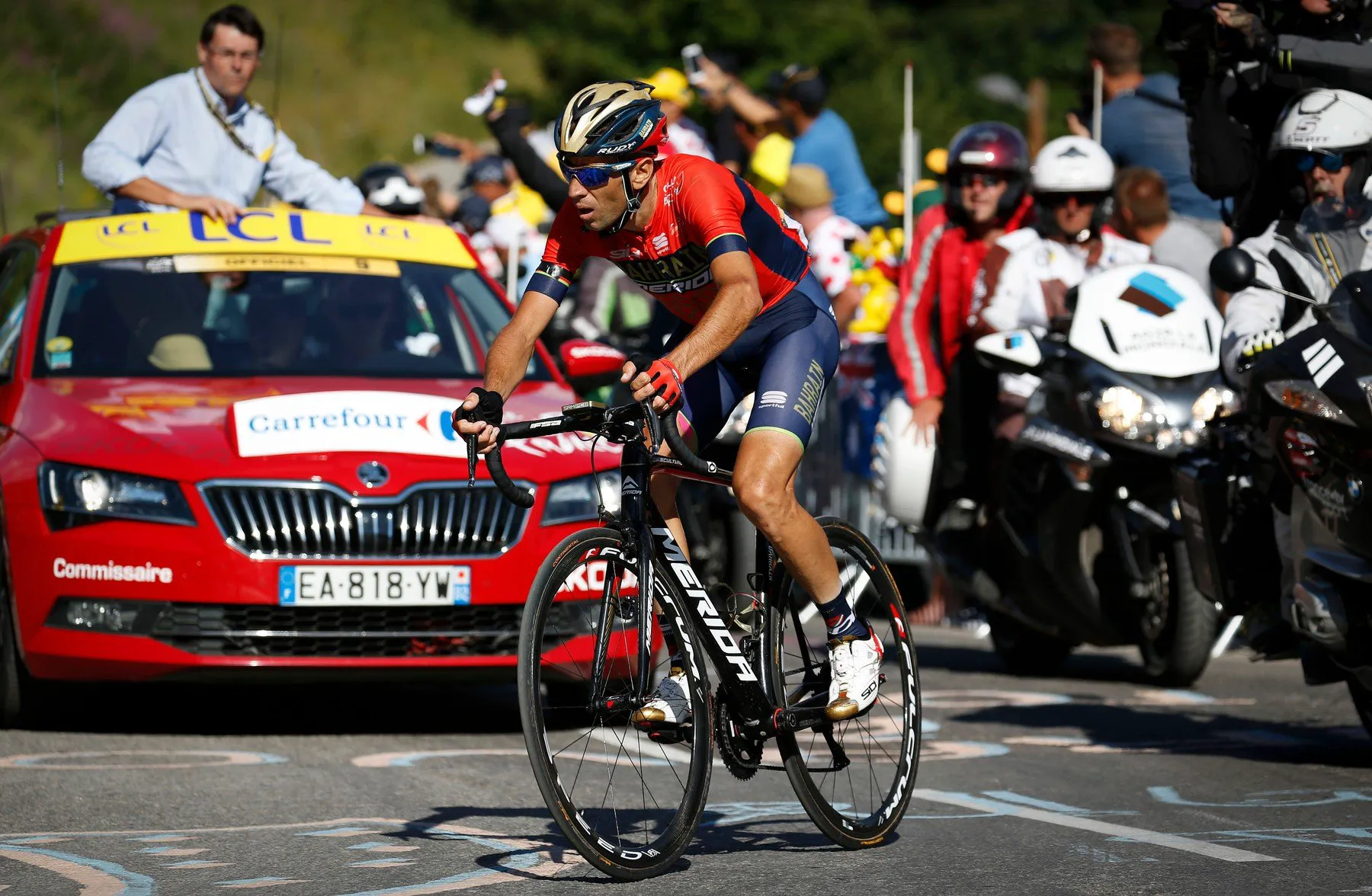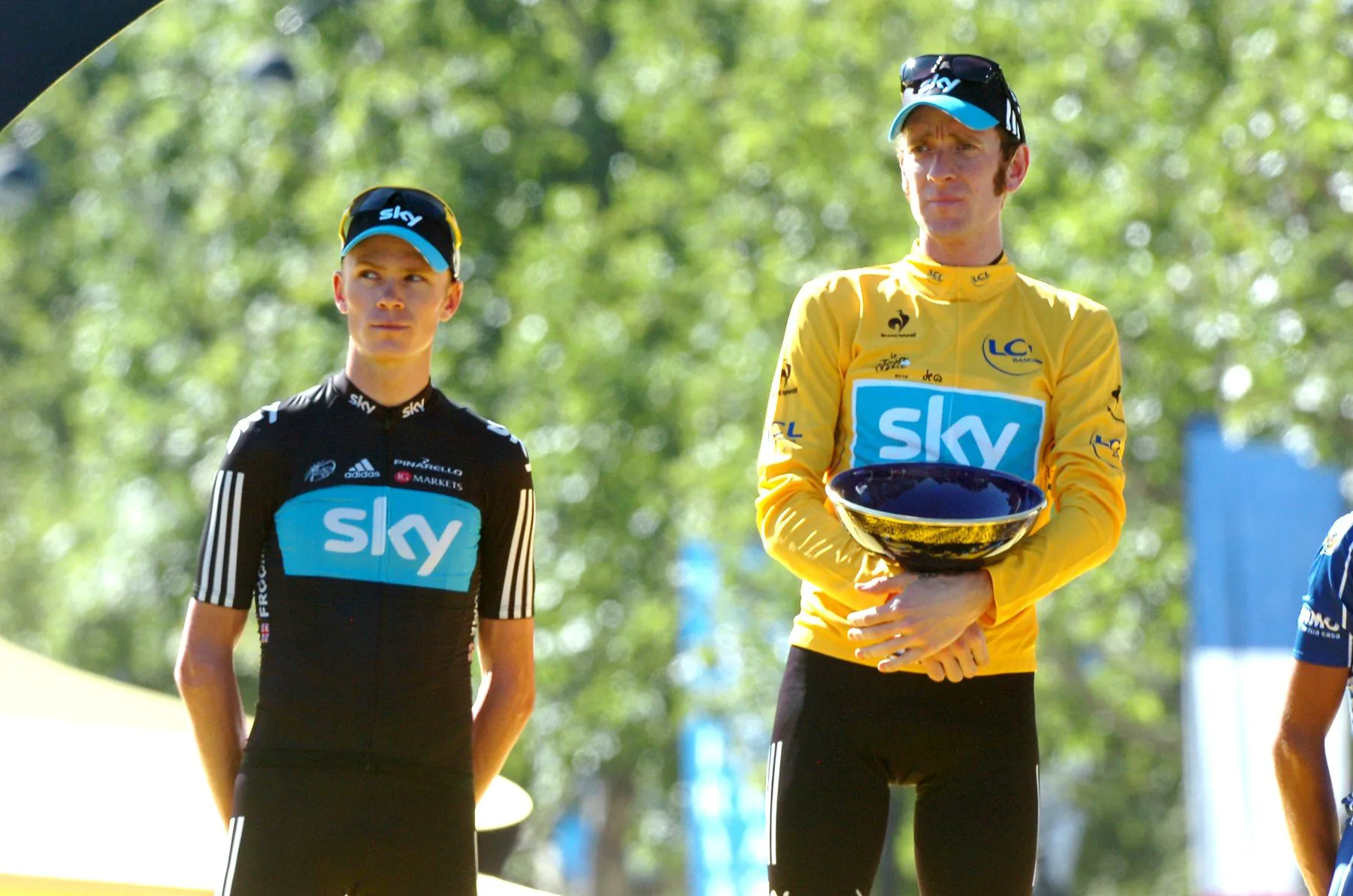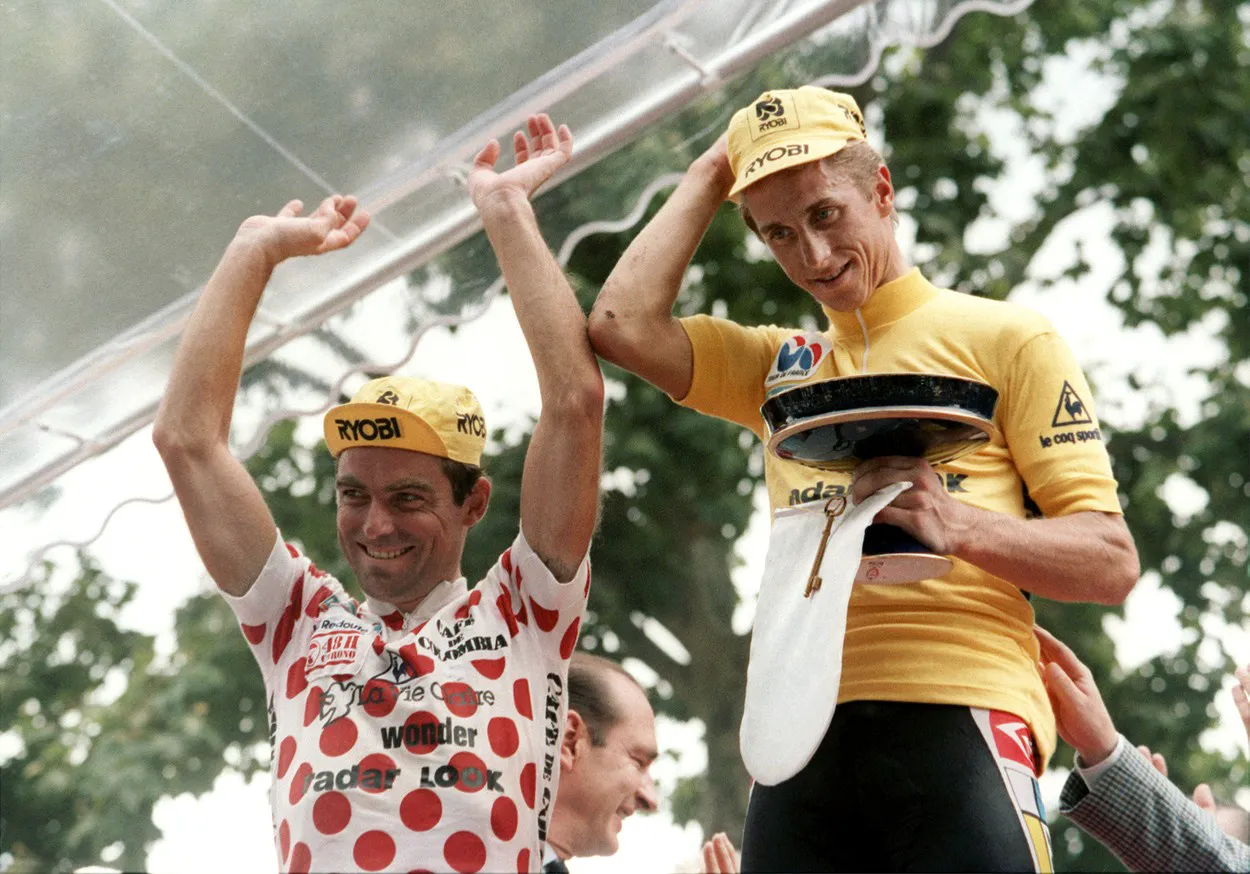And then… There are the other ones. The ones built not on legacy, but on stubbornness. Born from missed pulls, awkward glances, and podiums where you can feel the frost through the TV screen. These rivalries didn’t change the sport, but they made it infinitely more entertaining. So here’s a tribute to the feuds, fallouts, and full-blown sulks that gave us some of cycling’s finest side-eye.
Vincenzo Nibali vs. everyone not Italian
Vincenzo Nibali never really had a single nemesis. That would imply the drama was personal. It wasn’t. It was national. If you weren’t Italian, or worse, if you were Italian but didn’t ride like it, Nibali had no time for you. He was a throwback in a carbon-fibre world. A rider who believed in attacking early, riding with flair, and generally doing things the hard way. When he wasn’t named a favourite alongside the data-driven diesel engines of his generation, he took it as a personal affront. He didn’t just race with a chip on his shoulder. He carried the whole granite slab of Sicilian pride.
Nibali once famously said modern riders lacked “panache”. This wasn’t said quietly. Or once. It became a kind of guiding principle, especially when he’d go solo 40 kilometres from the line just to prove a point no one asked him to make. He was never fully part of the Skybot generation. Too unpredictable. Too emotional. Too annoyed by the idea that controlled, number-crunched riding was now considered smart. If Nibali launched an attack and it didn’t stick, that was fine. He’d still glare at the peloton like they’d offended his ancestors.
Even in his twilight seasons, when the legs weren’t what they used to be, Nibali raced like someone who’d rather blow up gloriously than finish anonymously. That wasn’t a tactic. It was a worldview. He didn’t ride for the spreadsheet. He rode for the headline. And if you didn’t understand that, you were probably one of the people he was racing against.
 Italian Vincenzo Nibali of Bahrain-Merida in action during the twelfth stage in the 105th edition of the Tour de France. © Profimedia, AFP
Italian Vincenzo Nibali of Bahrain-Merida in action during the twelfth stage in the 105th edition of the Tour de France. © Profimedia, AFP
Mark Cavendish vs. Marcel Kittel
When you push 2,000 watts for 30 seconds, no one questions your power. But that kind of effort usually comes with a short fuse. Add in the chaos of a bunch sprint, and you’ve got the perfect recipe for a full-blown grudge match. Cavendish and Kittel, though, took a different route.
Instead of shouting, they went for slow burns. Instead of drama, they served podium silence. For years, the two fastest men in the peloton raced side by side, trying very hard to pretend they weren’t watching each other like hawks. Cav was already a star when Kittel arrived. He had the wins, the swagger, and the kind of confidence that doesn’t leave room for second place. Then came Kittel – taller, blonder, quieter, and just as fast. He didn’t explode off the line. He glided. And for Cavendish, that was basically a war crime.
They never truly blew up at each other, which somehow made it worse. Every press conference was a masterclass in professionally managed loathing. Cav would throw in the occasional quote about “needing everything perfect to win.” Kittel would smile politely like someone at a dinner party sitting next to a firework. And yet, the rivalry was real. Cav’s gritted-teeth interviews. Kittel’s sudden-death sprints. Those moments where they would shoulder each other ever so gently at 70 km/h. Nothing reckless. Just enough to say, I see you, and I’m not moving.
For a few golden seasons, they dominated the sprints with equal parts velocity and vanity. They weren’t just trying to win. They were trying to win better. Cleaner. Cooler. With a better quote afterwards. Eventually, Kittel faded. Cav broke records. And whatever icy detente existed between them melted away with time. But during their peak, no sprint finish was complete without a flash of Cav’s rage, Kittel’s restraint, and both of them pretending the other one didn’t exist while clearly thinking of nothing else.
Chris Froome vs. Bradley Wiggins
Teamwork makes the dream work – unless you’re British, in which case, it mostly makes press conferences very uncomfortable. In 2012, Team Sky pulled off what was supposed to be a historic, unified Tour de France victory. Bradley Wiggins, sideburns sharp and tempo sharper, took yellow all the way to Paris. But behind him, very visibly, was Chris Froome. Lighter, smoother, and – unfortunately for everyone involved – clearly stronger.
Froome was the loyal lieutenant, at least in theory. In reality, he looked like a man calculating the exact moment it would be justifiable to drop his own team leader. On stage 11, he actually did. Then he got told to slow down, and he did it, but not before sending a message to every camera in France that he wasn’t thrilled about it. Wiggins, for his part, didn’t hide the tension either. The win was historic, but the body language was historic for other reasons. You’d have thought he’d lost a custody battle, not won the biggest race of his life.
After the Tour, things didn’t improve. Froome went on to win multiple yellow jerseys. Wiggins went on to make documentaries, grow a beard, and insist there was no bad blood. Which, in cycling, is almost always a sign that the blood is still very much bad. They rarely raced together after that. When they did, they kept things polite in the same way divorced couples keep things polite at shared birthdays. Smiles, short answers, no sudden movements.
It wasn’t the loudest rivalry. There were no bottle tosses, no front-page quotes. Just a slow, awkward unravelling of a partnership that was never quite a friendship. Froome wanted to win. Wiggins wanted to be the winner. And when only one of them could do both, everything cracked in that very British way – quietly, coldly, and with a firm handshake nobody believed.
 In 2012, Team Sky pulled off what was supposed to be a historic, unified Tour de France victory. © Profimedia, Polaris
In 2012, Team Sky pulled off what was supposed to be a historic, unified Tour de France victory. © Profimedia, Polaris
Bernard Hinault vs. Greg LeMond
On paper, they were friends. In practice, they raced like two men trapped in a trust fall exercise where neither one planned on catching the other. In 1985, Bernard Hinault – the Badger, a five-time Tour de France winner, national icon, and living legend – was chasing his final yellow jersey. His young teammate Greg LeMond had the legs to take it. But LeMond was told to hold back. Team orders, they said. Hinault had crashed earlier in the race, looked vulnerable, and the plan was simple: help the Frenchman win now, and next year, the team would return the favour.
LeMond did what he was told. Hinault won. Everyone clapped. And then came 1986.
That was supposed to be LeMond’s year. The American was now the leader. Hinault promised to support him. He then spent three solid weeks attacking him instead. Stage after stage, Hinault rode like a man trying to win a sixth Tour. Or at the very least, trying to make LeMond’s life miserable on the way to his first. When questioned, Hinault insisted he was “just making the race hard for their rivals.” This would have been more convincing had the rival he kept attacking not also been wearing the same jersey.
LeMond eventually won. Barely. By the end, he was exhausted, furious, and still visibly confused by what had just happened. The handshake on the podium could have been carved from stone. To this day, he still brings it up in interviews with the intensity of someone who’s definitely over it. Kind of like a Taylor Swift song. You know, the ones that absolutely aren’t about that guy she wrote an entire album about.
Hinault has never really admitted to anything. He still claims he kept his word. Technically, he did ride in support. Very aggressive, high-speed, full-frontal support. It’s one of cycling’s most iconic Tours. Not because of the drama on the road, but because it happened within the team. One rider trying to win. One rider trying not to get knifed in the back by his own domestique. And both of them pretending, very badly, that everything was fine.
Fausto Coppi vs. Gino Bartali
There’s petty. There’s dramatic. And then there’s Fausto Coppi and Gino Bartali sharing a hotel room for years and not speaking a single word. This wasn’t your standard team tension. It was an Italian opera set on two wheels, complete with icy stares, passive-aggressive bidons, and enough brooding silence to fill an Antonioni film.
Bartali was the old-school hero – devout, traditional, tough as gravel. Coppi was the new wave – modern, scientific, sleek. Bartali drank Chianti. Coppi injected vitamins. Bartali was Catholic guilt on two wheels. Coppi had an actual public scandal over an affair with a married woman, and didn’t really care. The nation picked sides. So did the team cars. Their rivalry split not just fans, but entire regions of Italy. North vs. South. Old vs. New. Grit vs. glamour. It wasn’t just about racing anymore. It was about identity.
And yet, they were teammates. Forced to ride together on the national team like two grumpy uncles on a family holiday. During one infamous race, Bartali reportedly refused to pass Coppi a bottle because, in his words, “he looked thirsty enough.” That may be the most elegant insult ever delivered mid-race.
They had moments of truce. A shared bottle during a brutal mountain stage became a symbol of possible peace. To this day, historians argue who handed it to whom, which tells you everything you need to know about the vibe. They eventually grew old, mellowed slightly, and even shared interviews later in life. But the edge never really left. You don’t ride side by side for years without saying a word and just move on. That kind of grudge settles deep in the gears.
Some grudges you just can’t let go
There’s something beautifully stupid about holding a grudge mid-race, when your heart rate’s at 190 and your vision’s starting to blur. But cyclists do it anyway. Because deep down, it’s not always about winning. Sometimes it’s about winning on your terms. And occasionally, it’s just about making sure the other guy doesn’t enjoy it too much.
Some of these rivalries shaped careers. Others just made awkward podiums and great post-race quotes. But in a sport where every watt, every second, and every stare matters, the pettiness isn’t a side effect. It’s part of the fuel. And, oh boy, do we love it.

